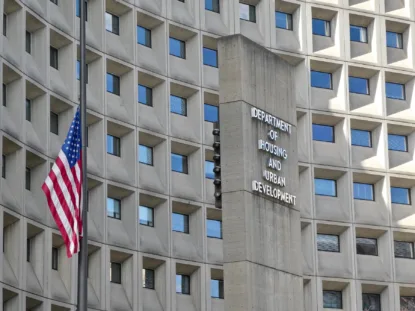Commentary
Biden Administration Boosts Fair Housing Access for People with Criminal Records
A proposed HUD rule change would stop federal housing providers from discriminating against many people harmed by mass incarceration and the war on drugs.

Earlier this year, Ms. M and her son came to Maryland Legal Aid for help with their housing. They had no history of eviction, and both were employed, but they had been forced into a weekly rate motel, living in despicable conditions while landlords repeatedly denied their long-term lease applications. All because Ms. M’s son had just returned from a 60-day jail stay for a non-violent offense.
Their story is tragic but not unique—a reflection of the all-too-common intersection of our raging housing crisis and hypercharged criminal legal system. But finally, relief for many Americans could be coming thanks to a Biden Administration proposal to amend federal Department of Housing and Urban Development (HUD) regulations to ensure otherwise qualified individuals are not locked out of affordable housing opportunities because of criminal records.
The proposed HUD rule change would bar federal housing providers from considering arrest-only records in tenant screenings and create a standardized individual assessment for use before denying or terminating tenancy for new violations. Proposed assessment factors include an applicant’s participation in treatment or recovery programs, consideration of the nature and circumstances of their conduct, and their employment history, among others.
HUD’s proposal would also prohibit federal housing providers from considering criminal convictions from beyond three years when screening tenants. Science suggests these shorter “lookback” periods are sound policy, as brain development continues into a person’s mid-twenties, and underdeveloped brains are correlated with high-risk behavior. Past that age, people are less likely to reoffend or to start offending. An individual in their thirties or forties who was arrested, adjudicated, and released from prison 10 or 20 years ago is not a risky tenant and should not be barred from housing.
Adjusting lookback periods would offer more protection for vulnerable prospective federal housing tenants, especially older applicants. But they would do little to help those who have been recently released from prison, a group that most needs supportive and affordable housing. HUD should consider shortening—if not fully eliminating—these lookback periods to better address the challenge faced by reentering citizens.
The proposed HUD rule change follows a trend of “fair chance” legislation that has taken off nationwide in recent years, most notably around employment. All but 14 states now have fair chance employment laws. These policies vary between states but include delayed background checks, removing questions about convictions or arrests on job applications, providing employers incentives for hiring system-involved people, and prioritizing qualifications over other exclusionary criteria.
All of this makes good economic sense. Millions of Americans have criminal records, and removing them from the labor market hurts the economy. But these individuals also need somewhere to live. Without stable housing, it’s exceedingly difficult to find and keep a job. Stronger federal housing protections will help ensure that people who have served their time, paid their fine, or completed their probation do not face a de facto lifetime sentence of limited opportunity.
For too long, federal housing restrictions have perpetuated broader systemic racial and socioeconomic inequities. Black, brown, and lower-income people are disproportionately represented in the criminal legal system, as are other vulnerable communities such as LGBTQ+ people, people in recovery, and individuals living with disabilities. In Maryland, more than 70 percent of the prison population is Black, compared to only around 30 percent of the population statewide.
While creating federal fair chance housing guidelines would help move us toward equity, the policy would have limited impact. HUD provides housing assistance to less than three percent of Americans. To truly increase housing opportunities for everyone, states must pass their own fair chance in housing laws. But these policies routinely face resistance from wealthy real estate interests and “Not In My Backyard” activists who are quick to fear-monger about the dangers of living next to people who’ve been convicted of a crime. The truth, however, is that most of us already have a neighbor with a criminal record. After all, the United States has the world’s highest incarceration rate. Nearly one-third of Americans are arrested at some point in their lives.
Maryland is no different. Every year, thousands of Marylanders are released from prison to return to their communities. Far more—like Ms. M’s son—come home after shorter jail stays for low-level offenses. Denying them housing is cruel and counterproductive.
Policymakers at the local, state, and federal levels must do more to protect people like Ms. M and her son from the housing instability that so often follows entanglement in the criminal legal system. Still, the Biden Administration’s proposed rule is a significant step forward and a reminder that we must start somewhere to help the millions of Americans who struggle with lasting stigma due to mass incarceration and the war on drugs.
